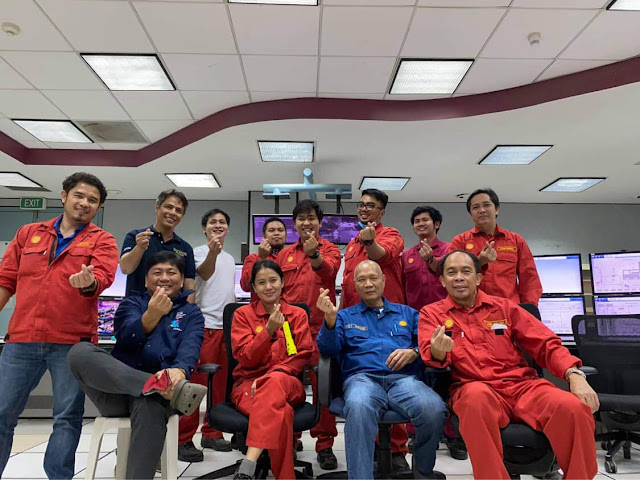Ian Alfonso with Darick Isla Tolentino and 16 others
The "why Mabini is seated the whole time" in Heneral Luna is making rounds on social media. The Historical Commission is grateful for the discovery of this rare photo of Mabini by the California.-based Kevin Soriano Perez in an auction in the U.S. and did not hesitate to bid for it, even it cost him much. A reproduction of the photo is among the highlights of the Commission's Mabini Shrine Tanauan. Soriano, who was also from the same town where Mabini was born, Tanauan City, Batangas, will "repatriate" this rare Mabini photo and will deposit at the Commission for posterity purposes.
Mabini fell ill sometime in January 1895, at the height of his youth and passion for reform movement in Manila. Until one day, the year after, he was paralyzed, and his physicians--all were fellow patriots--were clueless of his illness. He was already 31 then.
His detractors who envied his power and influence in the revolutionary government circulated a tsismis that his paralysis was actually caused by syphilis. He died in 1903, still clueless what caused his paralysis. 80 years later, in 1981, the Philippine Orthopedic Center and the National Historical Institute (forerunner of the Commission) exhumed his remains at Mabini Shrine Tanauan for post mortem examination. The physicians, driven by patriotism and inspired by Mabini, found out that Mabini's paralysis was caused by polio.
In a letter dated 9 November 1900, Mabini recounted: "Since January 1896, I cannot stand because of weakness in my waist and legs. I do not suffer any other ache and I look as if I were not sick. The physicians however say that I will never recover my health; but I do not despair because I am still able to do something good for my country." Indeed, Mabini was "still able to do something good" for the country, for he guided Aguinaldo in his decisions, served the people by contributing his knowledge on jurisprudence in designing a democratic government befitting for his people (democracy was not introduced to us by the Americans), and penned orders and laws needed by the country. He was indeed even more powerful than Aguinaldo, but used his power for the sake of bayan.
Here is an excerpt from an undated resignation letter (ca. December 1898) of Mabini. He felt Aguinaldo no longer needs him, as the latter had been listening to and being controlled by those whom Mabini called "viruses"--the likes of Pedro Paterno and Felipe Buencamino:
"Although I acknowledge that you have reasons to get tired of me because I only tell you things that may cause you trouble, I hope you will have the patience to read through what I am going to tell you, as I promise never to trouble you again...
"Neither did I expect that you would grant the rich people these guarantees. We worked without any pay; but the rich people will not put up their money without having a voice in the Treasury. It is probable that the members of the Board would ask for salaries. In this case, the rich people will get all the benefit and the soldiers will remain hungry. The rich would press the collection from the tenants. The administrators will pocket part of the money, and only a little will go to the government safe... In the end, the tenants and the employees will blame you, and the rich will have a big laugh.
"Would to heaven that their plans would not prosper!... I am calling your attention to this so that you would carefully choose the persons whom you may appoint as members, and would to heaven that you do not choose persons who would be bribed and who would be subservient!
"Inasmuch as you now count with many helpers, please allow me to resign. When you had no one, I worked by your side despite my ailment; now that you do not need me anymore, it is but fair that I should think of my health... That is why I said at the beginning that this will be the last time I shall trouble you... May God enlighten you, inasmuch as in your hands lies the welfare or the misfortune of the Philippines."
Aguinaldo did not approve Mabini's resignation. From being a mere political adviser pro bono, Aguinaldo made Mabini the president of his cabinet with concurrent position as Foreign Affairs secretary on 2 January 1899. Mabini finally resigned from Aguinaldo's government on 5 May 1899, out of disgust to the people surrounding and controlling Aguinaldo, i.e. Paterno, Buencamino. Together with Antonio Luna, Mabini was against the U.S. autonomy. A month later, Luna was assassinated and it is said if Mabini did not resign he would be assassinated as well.
Mabini was more than just the "brains of the revolution" but the "light that guided the Filipino nation."
Please do visit Museo ni Apolinario Mabini both at the Mabini Shrine in Tanauan City, Batangas and at PUP Sta. Mesa, Manila (Mabini's Nagtahan House). These are free to public. The Historical Commission has also produced a documentary on Mabini this year.
* * * * *
After his resignation, Mabini became a journalist and had written critical articles about the government. In his article “La Verdad en su Lugar” (“The Truth in its Place,”) published in La Independencia (Luna's newspaper) on 15 October 1899, he said "Sincere, honest, and loyal politics are, in truth, very hard to find these days, because, unfortunately, self interest and ambition take control over individuals and blind governments..."
The TRUTH will set you FREE.












































 ;
;